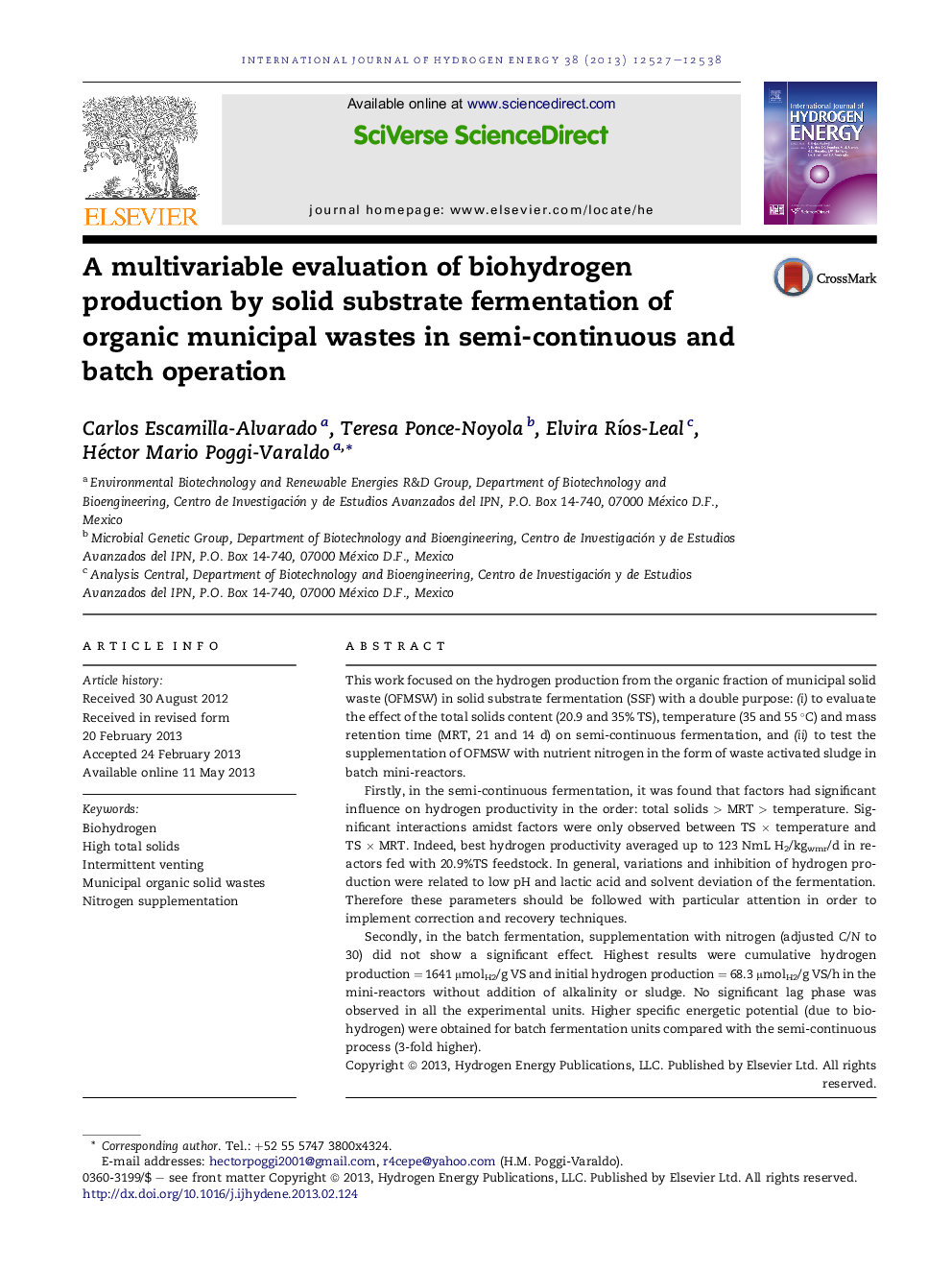| Article ID | Journal | Published Year | Pages | File Type |
|---|---|---|---|---|
| 1281484 | International Journal of Hydrogen Energy | 2013 | 12 Pages |
This work focused on the hydrogen production from the organic fraction of municipal solid waste (OFMSW) in solid substrate fermentation (SSF) with a double purpose: (i) to evaluate the effect of the total solids content (20.9 and 35% TS), temperature (35 and 55 °C) and mass retention time (MRT, 21 and 14 d) on semi-continuous fermentation, and (ii) to test the supplementation of OFMSW with nutrient nitrogen in the form of waste activated sludge in batch mini-reactors.Firstly, in the semi-continuous fermentation, it was found that factors had significant influence on hydrogen productivity in the order: total solids > MRT > temperature. Significant interactions amidst factors were only observed between TS × temperature and TS × MRT. Indeed, best hydrogen productivity averaged up to 123 NmL H2/kgwmr/d in reactors fed with 20.9%TS feedstock. In general, variations and inhibition of hydrogen production were related to low pH and lactic acid and solvent deviation of the fermentation. Therefore these parameters should be followed with particular attention in order to implement correction and recovery techniques.Secondly, in the batch fermentation, supplementation with nitrogen (adjusted C/N to 30) did not show a significant effect. Highest results were cumulative hydrogen production = 1641 μmolH2/g VS and initial hydrogen production = 68.3 μmolH2/g VS/h in the mini-reactors without addition of alkalinity or sludge. No significant lag phase was observed in all the experimental units. Higher specific energetic potential (due to biohydrogen) were obtained for batch fermentation units compared with the semi-continuous process (3-fold higher).
► We evaluated H2 production from OFMSW in semi-continuous and batch SSF. ► Significance of factors was total solids > mass retention time > temperature. ► Low pH and lactic acid and solvent deviation negatively affected H2 production. ► Supplementation with nitrogen or alkalinization of OFMSW was not necessary.
